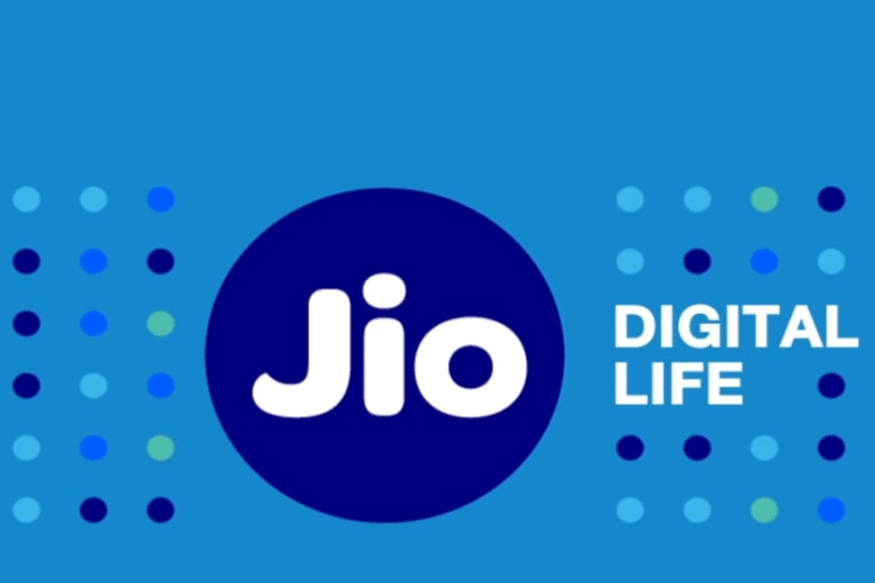Jio To Install World’s Largest Blockchain Network In India
Mukesh Ambani, the RIL chairman and the richest man in India, announced bigger plans to use the blockchain technology, a distributed ledger technology (DLT) which is the underlying system for Bitcoin. “Over the next 12 months, Jio [Reliance Jio Infocomm] will install across India one of the largest blockchain networks in the world with tens of thousands of nodes operational on day one,” Ambani said to the shareholders present at RIL’s 42nd annual general meeting.
Blockchain solutions records a growing list of ordered data called blocks and is very transparent in nature, hence all the involved parties (or here, stakeholders) can view the transactions in real-time. DLT enables recording, transferring and the sharing of data without a need of an intermediary, unlike the traditional ledger. These records cannot be reversed or edited.
An inter-ministerial committee powered by Subhash Chandra Garg, the Finance Secretary, supported that the DLTs have the potential to advance the inclusiveness and transparency in government services for citizens as well as the efficiency of the financial institutes.
“The DLT-based systems can be used by banks and other financial firms for processes such as loan-issuance tracking, collateral management, fraud detection, and claims management in insurance and reconciliation systems in the securities market,” the committee stated in its report. They also stressed on the regulatory risks and challenges involved with DLT like scalability, cyber-security, data protection, and transaction speed.
“On the back of Jio’s[engineering] talent we are now investing in scaling-up advanced technologies in our country even ahead of the rest of the world,” Ambani said.
He seems to be convinced that leveraging blockchain will help the company deliver unprecedented trust, efficiency, security and trust to many kinds of transactions. This will prove to be an important capability for India, especially for advancing the country’s supply chain industries for agricultural produce and various other services. “And using blockchain, we also have an opportunity to invent a brand-new model for data privacy where Indian data especially customer data is owned and controlled through technology by the Indian people and not by corporates, especially global corporations,” he added, stating that “data is wealth” and India’s wealth should stay within India.
Moreover, Ambani discussed with the shareholders about a new collaboration between Microsoft and Reliance that will enable tech-in-business across the nation. “Jio
“In combining efforts, Jio and Microsoft aim to enhance the adoption of leading technologies like data analytics, AI, cognitive services, blockchain, Internet of Things, and edge computing among small and medium enterprises to make them ready to compete and grow, while helping accelerate technology-led GDP growth in India and driving adoption of next-gen technology solutions at scale,” the companies stated in a statement on Monday.
At the annual general meeting, Ambani furthermore discussed the $700 billion New Commerce business opportunity which intends to “completely transform the unorganized retail market, which accounts for 90 percent of India’s retail industry”. He said that the enterprise wishes to employ IoT, blockchain, AI and other new technologies on a pan-India basis to the end of this year.”By removing inefficiencies and value destruction in today’s market ecosystem, New Commerce will transfer significant new value to consumers, producers, and merchants,” Ambani added.
Stay informed with daily updates from Blockchain Magazine on Google News. Click here to follow us and mark as favorite: [Blockchain Magazine on Google News].
Get Blockchain Insights In Inbox
Stay ahead of the curve with expert analysis and market updates.
latest from tech
Disclaimer: Any post shared by a third-party agency are sponsored and Blockchain Magazine has no views on any such posts. The views and opinions expressed in this post are those of the clients and do not necessarily reflect the official policy or position of Blockchain Magazine. The information provided in this post is for informational purposes only and should not be considered as financial, investment, or professional advice. Blockchain Magazine does not endorse or promote any specific products, services, or companies mentioned in this posts. Readers are encouraged to conduct their own research and consult with a qualified professional before making any financial decisions. The featured image used is just a creative depiction of the title and it does not intend to hurt sentiments of any person or institution. If it hurts anyone sentiments, please do not hesitate to reach out to Blockchain Magazine.

 Bitcoin
Bitcoin  Ethereum
Ethereum  XRP
XRP  Tether
Tether  Solana
Solana  USDC
USDC  Dogecoin
Dogecoin  Cardano
Cardano  Lido Staked Ether
Lido Staked Ether  TRON
TRON  Chainlink
Chainlink  Wrapped Bitcoin
Wrapped Bitcoin  Sui
Sui  Wrapped stETH
Wrapped stETH  Avalanche
Avalanche  Stellar
Stellar  Hedera
Hedera  Toncoin
Toncoin  Shiba Inu
Shiba Inu  LEO Token
LEO Token  Hyperliquid
Hyperliquid  Bitget Token
Bitget Token  WETH
WETH  Litecoin
Litecoin  USDS
USDS  Polkadot
Polkadot  Bitcoin Cash
Bitcoin Cash  Ethena USDe
Ethena USDe  MANTRA
MANTRA  Wrapped eETH
Wrapped eETH  Uniswap
Uniswap  Ondo
Ondo  Pepe
Pepe  Monero
Monero  Aave
Aave  WhiteBIT Coin
WhiteBIT Coin  NEAR Protocol
NEAR Protocol  Mantle
Mantle  Official Trump
Official Trump  Aptos
Aptos  Dai
Dai  Internet Computer
Internet Computer  Ethereum Classic
Ethereum Classic  Bittensor
Bittensor  Cronos
Cronos  OKB
OKB  POL (ex-MATIC)
POL (ex-MATIC)  Gate
Gate 




